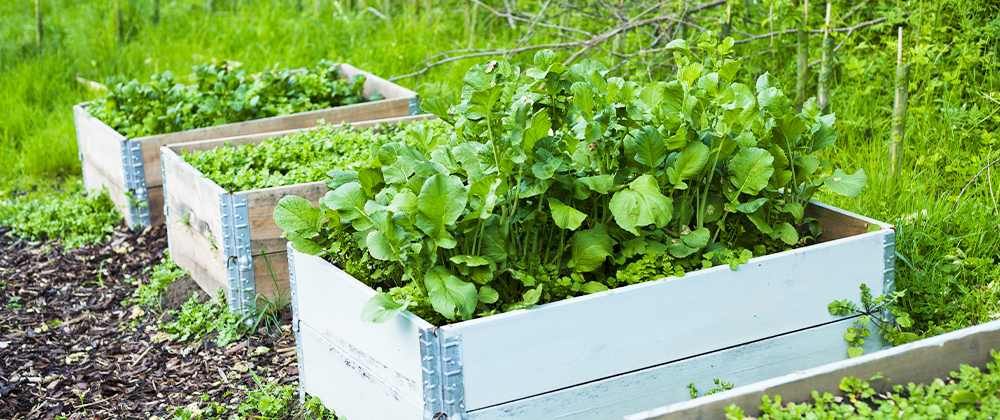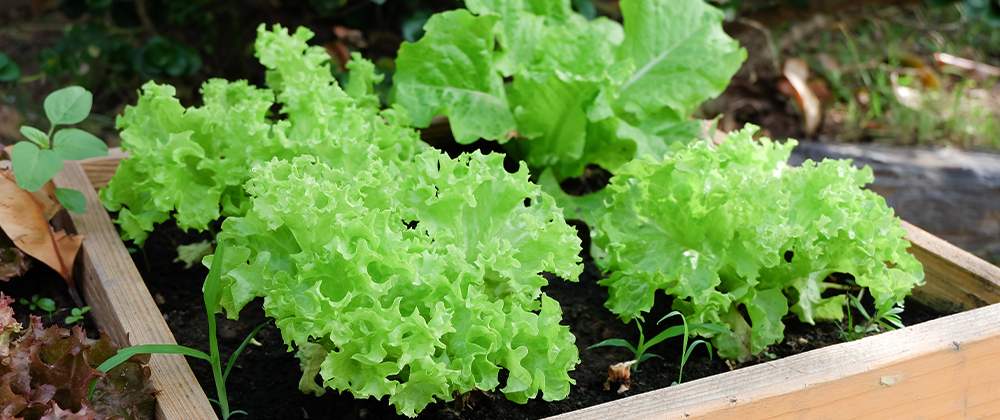What Are The Best Vegetables To Grow In An Elevated Garden
Happy Spring! Now that seedlings are sprouting and flowers are beginning to bloom, Bismarck gardeners are eager to start preparing their garden beds. If you haven't built any raised garden plots in your yard yet, then now is the time to do so! While some, hardier veggies prefer direct-seeding into the ground, many prefer the luxury of an elevated garden plot or container instead.
Best Veggies to Grow in Raised Beds
As tidy and attractive as they are, garden beds aren't just for looks. Aside from adding interest to your landscape, raised gardens also provide the ideal environment for growing many veggies and can result in bountiful harvest. Like container gardens, they provide an elevated and more contained growing space, protecting your seedlings from frost, pests, weeds, and disease. Here are the best crops for raised beds:
Carrots
Carrots and other root vegetables, like parsnip, radish, and beets, are perfect choices for raised gardens. Root veggies grow underground, where it's difficult to control conditions in the landscape. Rocks and underground debris often lead to misshapen or stunted vegetables. With a contained area, you know exactly what's going on beneath the surface and can guarantee a healthier harvest.
Loamy, well-draining soil mixes are ideal for planting carrots. Like other root vegetables, carrots can tolerate a light frost and should be directly seeded into your garden. You can even start sowing carrot seeds a week or two before the risk of frost has passed! They take 70-80 days to mature.

Potatoes
Growing potatoes in elevated beds is much easier than growing them right in the ground. Potatoes are planted about 6 inches deep, but when they sprout, they grow closer to the soil surface. As potato stalks grow, gardeners mound soil around the stalks to protect the plant and encourage continued growth. Container soils are much looser than landscape soil, which makes this process, called "hilling," much easier.
Plant your potato tubers in full sun, in rich, slightly acidic soils. After planting, avoid watering the area until you actually see them starting to sprout—at which point, you can continue to keep the soil evenly moist. Once your plant has finished blooming, you can begin to pull baby spuds from the ground. When the foliage has died back, wait about two weeks to harvest the mature tubers.
Onions
Onions are already one of the easiest veggies to grow, but growing them in raised beds makes it even simpler! They thrive in the enriched, well-draining environment that good-quality soil mixes provide. Onions also require a fairly long growing season of 100 days or more, so being able to get them out earlier is a huge bonus.
Onions prefer fertile planting soils enriched with fresh compost and fertilizers. If you're growing them from seed, we suggest starting them indoors earlier in the spring, having them ready for transplant as soon as the last frost date has passed.
Summer Squash
Summer squashes, like yellow squash and zucchini, are versatile veggies to have handy in the kitchen. These warm-season favorites can't tolerate frost, so they'll appreciate the extra warmth and protection that elevated gardens provide. They'll also enjoy ample sunlight, good drainage, and fertile soils.
Seed summer squash in the spring, after the soil has warmed up and the risk of frost has passed. You can direct-sow their seeds, but you may also opt to start them earlier, indoors, and transplant seedlings at this time. Summer squash should be ready to harvest just in time for your late-summer barbeques and labor day celebrations. Ever tried crunc hy, pickled zucchini ? It's delicious!

Leaf Lettuce
As a cold-weather crop, lettuce doesn't necessarily have to be grown in an elevated plot or container, but it's super easy to do so. Some varieties take just 30 days to mature (even earlier if you harvest them as microgreens!), so being able to get them planted earlier means you could have fresh greens by the time your other crops are just starting to get planted!
Plant lettuce and other greens in full sun, in loose soils with ample drainage. Salad greens prefer cool conditions, so make sure to keep the soil consistently moist with frequent, light waterings (we aren't trying to develop deep roots here). Once your lettuce reaches the size you want, go ahead and harvest it! We recommend harvesting in the morning for a better flavor.
Best Soil for Growing Vegetables in Raised Beds
While the "best" soil will depend on your plants' needs, we can certainly tell you what not to fill your garden bed with—garden dirt. Soil found in your landscape tends to provide limited nutrition and can bring along a host of pests with it.
Think about it, when you plant seeds in the garden, you always have to enrich the area with soil amendments. Why start your raised gardens the same way? Take advantage of this enclosed space and fill it in with premium soil mixes instead. You can choose mixes tailored to the specific needs of your crops. If you still want to mix in amendments such as compost or fertilizer, you can do so much more easily with these loose soils.
While it's still a little too soon to be planting most vegetables outdoors (our frost date isn't until the end of May), it's never too early to start planning your garden. Elevated gardens provide the perfect environment for nourishing veggies, allowing you to grow more food in less space, and harvest sooner. Stop into Plant Perfect for containers and pottery, soil mixes, vegetable seeds, and all of your raised bed gardening needs!
What Are The Best Vegetables To Grow In An Elevated Garden
Source: https://plantperfect.com/vegetables-that-grow-best-in-a-raised-garden-bed/
Posted by: sabalahavock.blogspot.com

0 Response to "What Are The Best Vegetables To Grow In An Elevated Garden"
Post a Comment